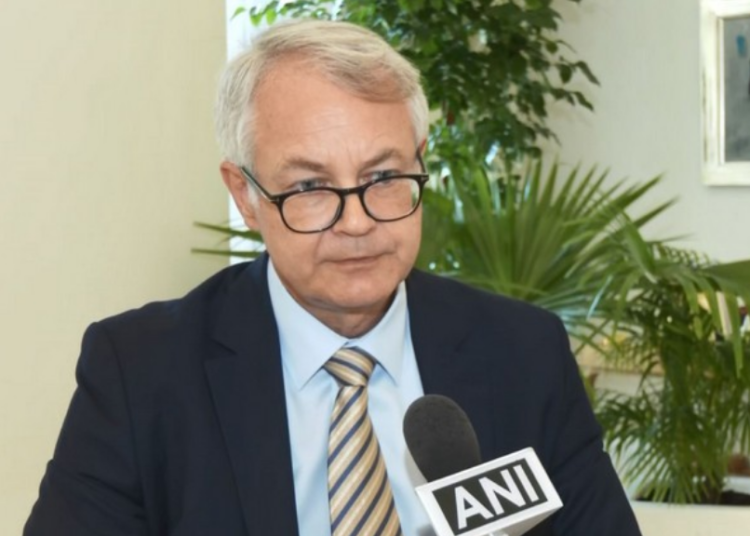Introduction: Finland’s decision to join the North Atlantic Treaty Organization (NATO) represents a significant shift in its foreign and security policy, according to Finland’s Ambassador to India, Kimmo Lahdevirta. He emphasized that this move underscores Finland’s commitment to the principle of collective defence, where an attack on one or several NATO member states is considered an attack against all. Ambassador Lahdevirta also outlined Finland’s robust national defence capabilities, civil preparedness, and dedication to allocating over 2 per cent of its GDP to defence.
Key Points:
- Ambassador Kimmo Lahdevirta described Finland’s decision to join NATO as a major shift in its foreign policy, emphasizing the country’s commitment to the principle of collective defence. This commitment means that an attack on any NATO member state will be regarded as an attack on all member states.
- He highlighted Finland’s military and political dimensions of NATO membership. Militarily, Finland now participates in defence planning, exercises, procurement, and other NATO systems. Politically, this move has deepened Finland’s relationship with NATO member states.
- Finland’s NATO membership brings significant assets to the alliance, including strong national defence, civil preparedness, and crisis resilience. The country’s commitment to allocate over 2 per cent of its GDP to national defence is seen as a substantial contribution.
- Ambassador Lahdevirta expressed Finland’s hope for the admission of Sweden into the NATO bloc, stating that the alliance is incomplete without Stockholm. He emphasized the importance of both countries working together to enhance security, especially in Northern Europe.
- Finland and Sweden jointly applied for NATO membership in May of the previous year. While Finland’s membership was ratified in April 2023, Sweden’s admission was initially blocked by Turkey, which exercised its veto power. Turkey had accused Sweden of “supporting” Kurdish fighter groups, leading to the initial rejection.
- However, Turkey changed its stance in July of the current year, paving the way for Sweden’s potential membership in NATO. This shift in Turkey’s position occurred after a closed-door meeting ahead of the NATO summit.
Conclusion: Finland’s recent decision to join NATO underscores its commitment to collective defence and marks a significant change in its foreign policy. The move reflects Finland’s dedication to enhancing its national defence capabilities and contributing to the alliance’s goals. Furthermore, Ambassador Lahdevirta’s remarks express hope for Sweden’s NATO membership, emphasizing the importance of both countries collaborating to strengthen security in Northern Europe and the broader NATO alliance.








 India
India












